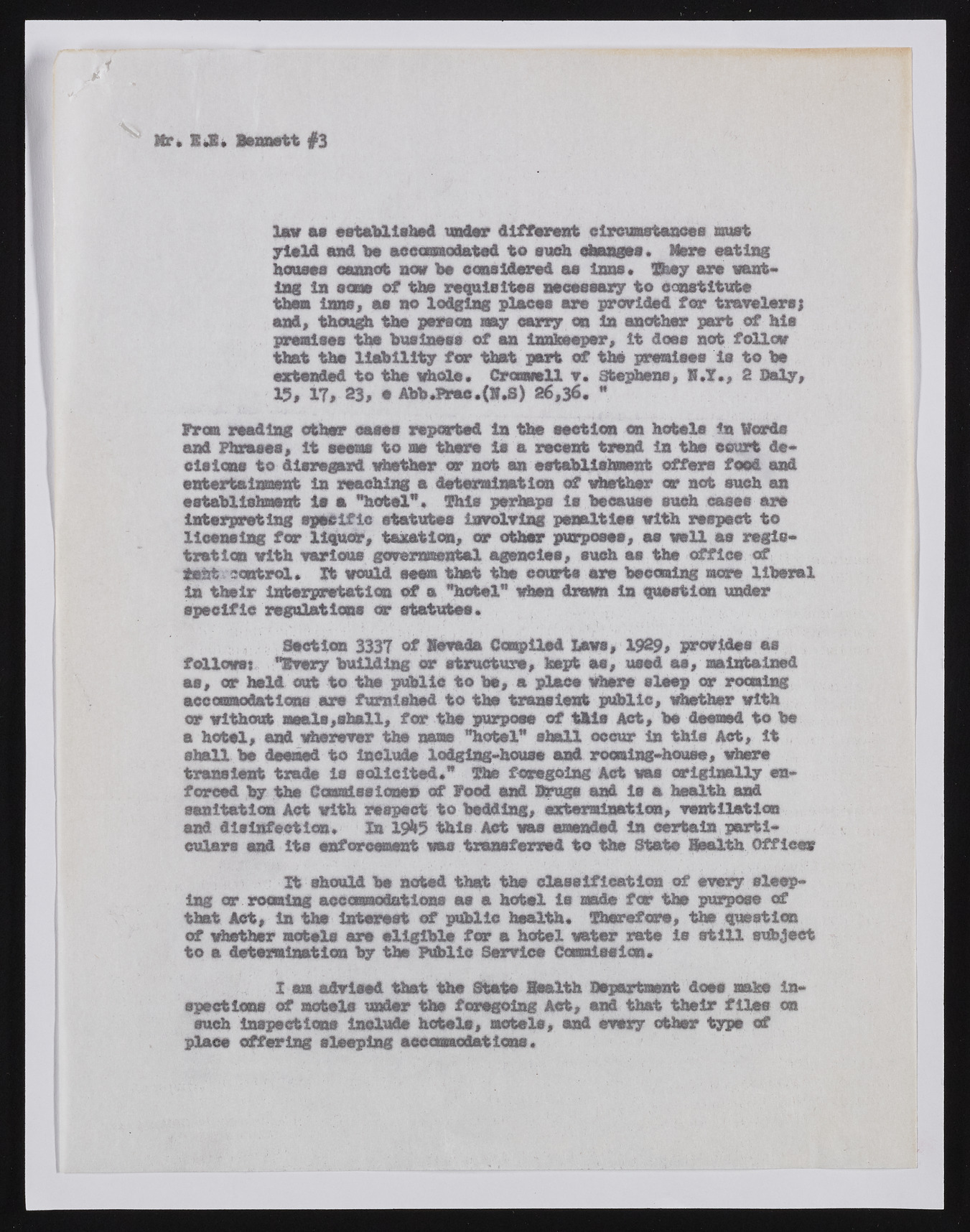Copyright & Fair-use Agreement
UNLV Special Collections provides copies of materials to facilitate private study, scholarship, or research. Material not in the public domain may be used according to fair use of copyrighted materials as defined by copyright law. Please cite us.
Please note that UNLV may not own the copyright to these materials and cannot provide permission to publish or distribute materials when UNLV is not the copyright holder. The user is solely responsible for determining the copyright status of materials and obtaining permission to use material from the copyright holder and for determining whether any permissions relating to any other rights are necessary for the intended use, and for obtaining all required permissions beyond that allowed by fair use.
Read more about our reproduction and use policy.
I agree.Information
Digital ID
Permalink
Details
Member of
More Info
Rights
Digital Provenance
Publisher
Transcription
Nr, E«E* Bennett #3 From reading other cases reported in the section on hotels in Horde and Phrases, It seems to ns there is a recent trend in the eeurt decisions to disregard whether or not an establishment offers food and entertainment in reaohing a determination of whether or not such an establishment is a "hotel”. This perhaps Is because such cases are Interpreting specific statutes involving penalties with respect to licensing for liquor, taxation, or other purposes, as well as registration with various governmental agencies, such as the office of tent control, ft would seem that the courts are becoming more liberal in their interpretation of a "hotel” when drawn in question under specific regulations or statutes. Section 3337 of Nevada Compiled lave, 1929, provides as followst "Every building or structure, kept as, used as, maintained as, or held out to the public to be, a place where sleep or rooming accommodations axe furnished to the transient public, whether with or without meals,shall, for the purpose of this Act, be deemed to bo a hotel, and wherever the asms "hotel” shall occur in this Act, it shall be deemed to Include lodging-house and rooming-house, where transient trade is solicited." The foregoing Act was originally enforced by the Caamiseionen of Food and Strugs and is a health and sanitation Act with respect to bedding, extermination, ventilation and disinfection. In 19^5 this Act was amended in certain particulars and its enforcement was transferred to the State health Officer ft should be noted that the classification of every sleeping or rooming accomodations ae a hotel is made for the purpose of that Act, in the Interest of public health. Therefore, the question of whether motels are eligible for a hotel water rate le still subject to a determination by the Public Service Commission. X am advised that the State Health Department does make inspections of motels under the foregoing Act, and that their files on such inspections include hotels, motels, and every other type of place offering sleeping accommodations. law as established under different circumstances must yield and be accommodated to such changes. Here eating houses cannot now be considered as inns. They are wanting in seme of the requisites necessary to constitute them inns, ae no lodging places are provided for travelers; and, though the person may carry on in another port of his premises the business of an innkeeper, it does not follow that the liability for that part of the premises is to be extended to the whole. Cromwell v. Stephens, K.Y., 2 Daly, 13, 17, 23, e Abb.Frac.(Jf.s) 26,36. ”

